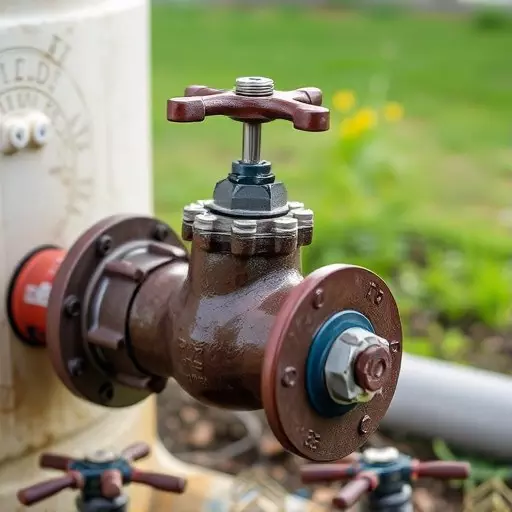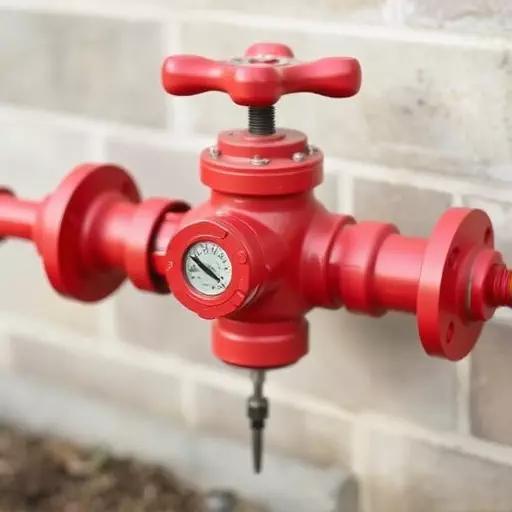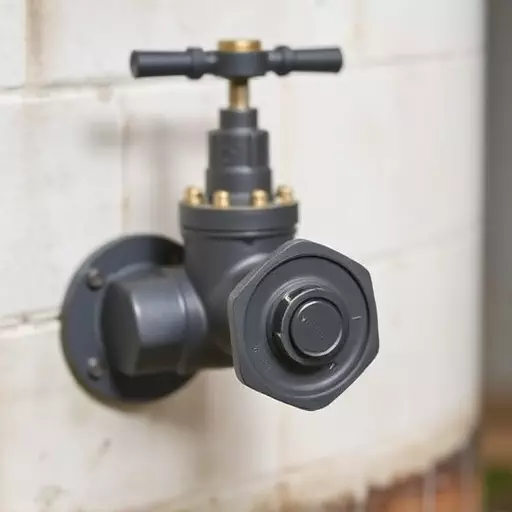Backflow preventers are essential for maintaining water safety in Spring Lake's municipal systems by stopping contaminated water from flowing backward. Both residential and commercial settings require regular testing and inspections to ensure these devices function correctly. Annual inspections safeguard drinking water sources in residential areas, while more rigorous commercial inspections identify potential issues early, preventing accidents and ensuring local regulations are met. This proactive approach contributes to a robust water supply network, offering peace of mind for residents and businesses alike.
Spring Lake residents and businesses rely on reliable water systems, ensuring safety and purity. This is where municipal backflow testing services play a pivotal role, protecting against harmful contaminants. Our comprehensive guide explores the significance of backflow preventers in maintaining water quality and the crucial aspects of regular testing and inspection. From annual check-ups to commercial compliance, we demystify Spring Lake’s local regulations and highlight common issues discovered during inspections. Discover how choosing the right backflow testing service can ensure your peace of mind.
- Understanding Backflow Preventers: Their Role in Water Safety
- The Importance of Regular Testing and Inspection
- Annual Backflow Preventer Testing: What to Expect
- Commercial Backflow Prevention: Ensuring Compliance for Businesses
- Spring Lake's Local Regulations and Requirements for Backflow Testing
- Common Issues Found During Backflow Inspections
- Choosing a Reputable Municipal Backflow Testing Service
Understanding Backflow Preventers: Their Role in Water Safety
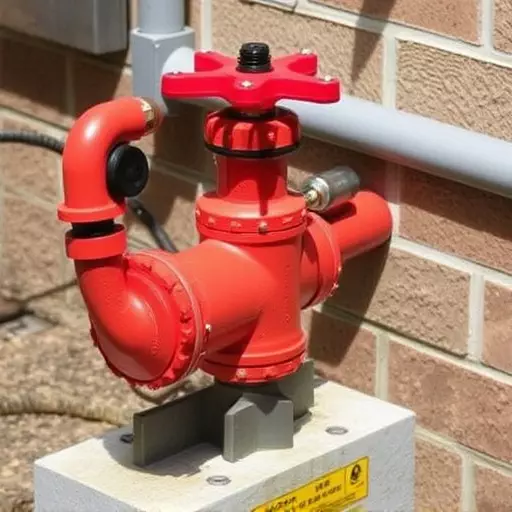
Backflow preventers play a pivotal role in ensuring water safety within municipal systems. These devices are designed to stop contaminated or backward flow of water, protecting the main supply from potential hazards. In residential areas, backflow preventer testing Spring Lake professionals ensure these mechanisms function correctly, safeguarding drinking water sources. The annual backflow preventer testing is crucial for commercial settings as well, where larger-scale systems can pose greater risks if not properly maintained.
Commercial backflow preventer inspection involves rigorous checks to verify the integrity and efficiency of these safety devices. Regular testing identifies potential issues early on, preventing accidents and ensuring compliance with local regulations. By prioritizing backflow preventer testing, Spring Lake communities contribute to a robust water supply network, offering peace of mind to residents and businesses alike.
The Importance of Regular Testing and Inspection
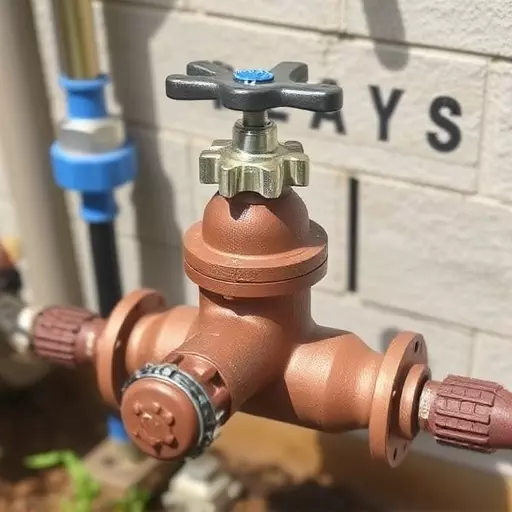
Regular testing and inspection of backflow preventers is a crucial aspect of maintaining water quality and safety in Spring Lake’s residential and commercial properties. These devices are designed to stop the backward flow of water, preventing contaminants from entering the main water supply. However, over time, backflow preventers can wear out or fail, posing potential health risks. That’s where annual backflow preventer testing becomes essential. By conducting these tests, professionals ensure that the devices are functioning correctly, providing a vital layer of protection against hazardous substances like chemicals and bacteria entering the drinking water system.
Commercial backflow preventer inspection is equally critical for businesses and large facilities. With more complex plumbing systems, regular assessments help identify potential issues early on. This proactive approach not only safeguards public health but also complies with local regulations. Spring Lake’s residents and business owners can rest assured that their water supply remains safe by keeping backflow preventers in top condition through routine testing and inspection.
Annual Backflow Preventer Testing: What to Expect
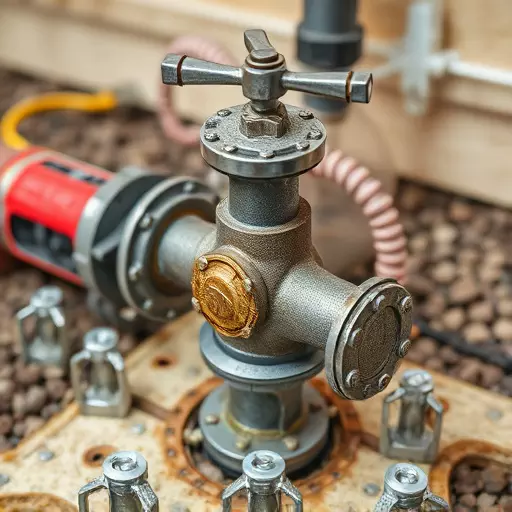
Every year, property owners in Spring Lake and surrounding areas are required to undergo backflow preventer testing for their commercial properties. This essential maintenance step is crucial to ensuring the safety of your water supply and preventing any potential contamination. During the test, a certified inspector will assess your backflow prevention devices (BPDs), which are designed to stop contaminated water from flowing back into the main water supply.
The process involves several key components. The inspector will first inspect the BPDs for any visible damage or wear and tear. They will then perform pressure testing to verify the device’s functionality. This includes checking the shut-off valves, test cocks, and other components to ensure they operate as intended. Additionally, the inspector may use specialized equipment to detect any leaks or pressure variations that could indicate a failure in the system. Once the testing is complete, you’ll receive a detailed report outlining the findings, ensuring your backflow preventer is compliant with local regulations and safeguarding your water source.
Commercial Backflow Prevention: Ensuring Compliance for Businesses

In the commercial realm, backflow prevention is a critical aspect of maintaining safe and compliant water systems. Spring Lake businesses must adhere to strict regulations regarding annual backflow preventer testing and inspection. This meticulous process involves evaluating and ensuring that backflow devices, such as backflow preventers, function correctly to stop harmful contaminants from flowing back into the main water supply. Professional commercial backflow prevention services play a vital role in this regard, offering comprehensive testing and maintenance to meet regulatory standards.
Regular backflow preventer testing is essential for any business with complex plumbing systems. These tests help identify potential vulnerabilities and ensure the integrity of the water supply. By employing specialized technicians who understand the intricacies of commercial plumbing, businesses can stay ahead of regulations and safeguard their operations from water quality issues. This proactive approach not only protects customers but also fosters a culture of safety and compliance in Spring Lake’s vibrant business landscape.
Spring Lake's Local Regulations and Requirements for Backflow Testing

Spring Lake has specific Local Regulations and Requirements for Backflow Testing to ensure the safety and integrity of its water supply. Property owners and managers in Spring Lake are mandated to conduct regular backflow preventer testing, typically an annual requirement. This stringent policy is in place to guard against potential contamination of the local water system.
The process involves a comprehensive Commercial Backflow Preventer Inspection, where certified professionals verify the functionality and condition of backflow devices. These devices play a critical role in preventing contaminants from flowing backward into the main water supply lines. Adhering to these regulations not only safeguards the community’s water quality but also helps maintain compliance with local health and safety standards.
Common Issues Found During Backflow Inspections

During backflow inspections in Spring Lake, several common issues are often encountered. One of the primary concerns is the wear and tear on backflow preventers, which can lead to malfunctions if not addressed promptly. These devices are crucial for preventing contaminated water from flowing back into the main supply, so any damage or failure can pose significant risks to both residential and commercial properties.
Another frequent issue is incorrect installation or maintenance of the backflow preventer. This may include improper adjustment of pressure relief valves, faulty piping connections, or lack of proper documentation. Regular annual backflow preventer testing is essential to ensure these devices function optimally. For commercial spaces, comprehensive inspections are required to meet regulatory standards and maintain safe water systems.
Choosing a Reputable Municipal Backflow Testing Service

When selecting a Municipal Backflow Testing Service, such as those offering Backflow Preventer Testing Spring Lake, it’s paramount to choose a reputable company with a proven track record. Look for firms that specialize in both residential and commercial backflow preventer inspection, demonstrating their versatility and expertise. Check their certifications and licensing to ensure they meet industry standards, and ask for references or reviews from previous clients to gauge their reliability and the quality of their service.
Reputable services will also provide detailed reports outlining the testing process and any issues found, ensuring transparency. They should offer flexible scheduling, including annual backflow preventer testing as required by law, to cater to your needs. Additionally, consider their response time in case of emergencies or unexpected issues that may require immediate attention, ensuring peace of mind for property owners and managers alike.
